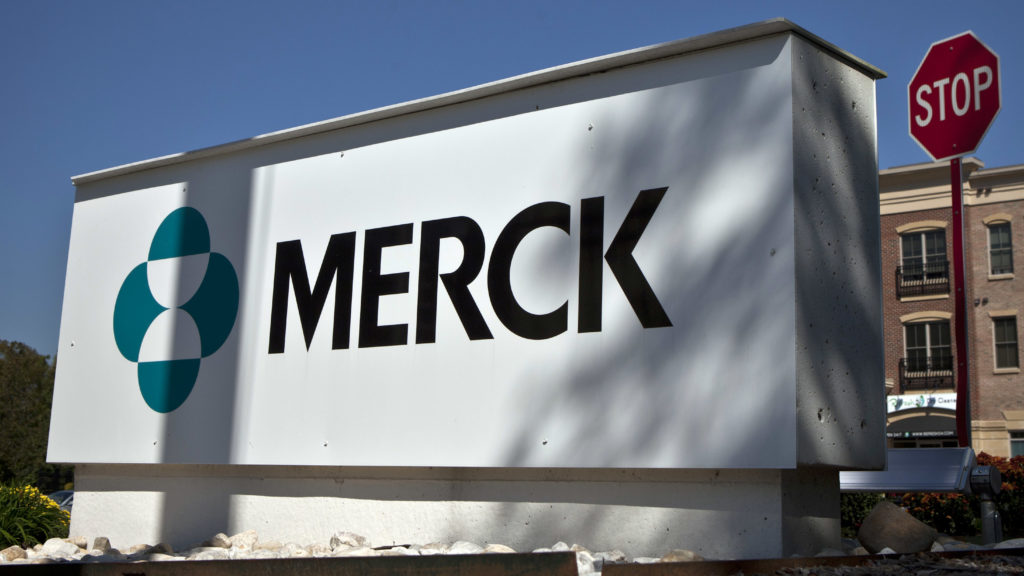Want to stay on top of the science and politics driving biotech today? Sign up to get our biotech newsletter in your inbox.
Good morning! Today, we learn more about studying tumors at the International Space Station, study the buzzy Amgen weight loss drug MariTide, and find a lawsuit in which a former Spark Therapeutics executive is accusing ex-colleagues of sexism.
The need-to-know this morning
- Pfizer appointed Andrew Baum as its new chief strategy and innovation officer. Baum joins Pfizer from the investment bank Citi, where he served as head of global healthcare research. He is joining Pfizer’s executive committee and will report to Chairman and CEO Albert Bourla.
- In a mid-stage study, EyePoint Pharmaceuticals said its eye drug Duravyu failed to improve disease control compared to a sham injection in patients with non-proliferative diabetic retinopathy.
- GlycoMimetics said its experimental drug for acute myeloid leukemia failed to achieve the primary goal of a Phase 3 study.
- Krystal Biotech reported Vyjuvek sales of $45.3 million in the first quarter. Vyjuvek is a topical gene therapy for dystrophic epidermolysis bullosa, an inherited disorder causes painful blisters and persistent wounds.
A deep dive into Amgen’s experimental obesity drug, MariTide
There so much buzz around Amgen’s experimental obesity drug, MariTide. The company simply saying it was “very encouraged” about interim Phase 2 data led to a 12% spike in Amgen’s stock — even though no new data were shared. STAT’s Elaine Chen answers some hot questions about the closely watched injectable.
Early data show MariTide, a monoclonal antibody drug, could potentially offer more profound weight loss than other treatments on the market. But it’s already difficult to manufacture peptide drugs like Wegovy and Zepbound — and antibodies are more complex molecules.
Although Novo and Lilly’s stocked dropped a little on Friday, the companies are dominating the space and it’d be hard for competitors to catch up. The two companies are also developing next-generation candidates that are further ahead than MariTide. So even if other companies have strong contenders in the obesity space, they’d be years away from an FDA approval and “so far behind [Novo and Lilly] that it’s still going to probably be hard to see how they catch up,” one analyst said.
Studying stem cells and cancer in low Earth orbit
Turns out, the microgravity of low Earth orbit allows scientists to study cancer growth at an accelerated clip. Catriona Jamieson of UCSD’s Sanford Stem Cell Institute is working with NASA to send tumors and stem cells into space — ferried aboard SpaceX and Axiom-3 flights to the International Space Station. STAT’s Nicholas St. Fleur chatted with Jamieson about why aging and oncology could potentially be better understood so far away from our planet.
She was inspired by a 2019 NASA study that showed that after 340 days in space, astronaut Scott Kelly came back 2 inches taller than his earthbound twin.
“But then I noticed he had inversions and translocations in his chromosomes. His chromosomes were kind of mixed up in the immune cells, which can happen if you have preleukemic conditions developing in your blood, so that doesn’t look good,” she said. “I thought, maybe space is a way to understand stem cell aging when it starts to be premalignant and fully malignant but in an abbreviated time frame.”
Former Spark CTO suing for alleged discrimination
The former chief technical officer of Spark Therapeutics alleges she experienced discrimination and sexism while working there, the Philadelphia Business Journal writes. Cynthia Pussinen led nearly 400 employees in Spark’s technical development and operations unit from February 2021 to December 2022.
Pussinen said she faced “repeated and ongoing acts and practices of sex discrimination by some of her male peers and colleagues, most notably by Federico Mingozzi,” who was the company’s chief scientific officer before leaving this past November. The lawsuit said that CEO Ron Philip allegedly told Pussinen in March 2022 that he was aware of Mingozzi’s “mistreatment” of women. But instead of sanctioning him, she alleges Philip told her to “make it work” because everyone but Mingozzi is “expendable” and that “we need him more than he needs us.”
Pussinen, who is now CEO of a small regenerative medicine company called Sernova, is seeking unspecified economic damages, along with compensatory damages for pain and suffering and emotional distress.
Merck may have a competition for ever-scarce BCG
There’s long been a global shortage of the BCG vaccine, which has long been used to treat bladder cancer. This may change, as FiercePharma points out. A couple of weeks back, ImmunityBio won FDA approval for Anktiva, an immunotherapy that’s meant to be used along with the BCG vaccine to treat patients with bladder cancer. Now, ImmunityBio has partnered with the Serum Institute of India to manufacture BCG globally.
ImmunityBio framed it in a press release as “a long-term solution to chronic BCG supply shortage issues” and intends to produce the treatment “at large scale” so it can be used in combination with Anktiva. Merck has been the only U.S. purveyor of BCG since 2012, after Sanofi and another competitor bowed out due to manufacturing issues. In 2020, Merck laid out plans to boost BCG production, but that will likely not come to fruition until at least next year. It’s been rationing BCG since 2019.
Notably, an oncolytic virus-based therapeutic made by CG Oncology showed a complete response in about 75% of patients with late-stage bladder cancer, new Phase 3 data show. If approved, the drug could be used without the aid of BCG.










